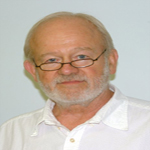A 21st Century United Nations? It’s about time

President Barack Obama and First lady Michelle Obama greet children while touring Humayun’s tomb in New Delhi, November 7, 2010. (Official White House Photo by Chuck Kennedy)
President Obama left town only a few days after the “shellacking” he and the Democrats took in the election, traveling to India for the longest visit to a foreign country in his presidency so far. Andy Borowitz made a wonderfully sly joke by reporting that Sarah Palin decried his trip to India, saying, “Why is he visiting the Indians? It’s not Thanksgiving!”
It might be said that this president would do well to make foreign affairs the focus of his second two years in office. It’s certainly an area in which he is “in his element.” His domestic programs, though clearly impressive by any regular standards, have cost him (and his party) dearly in the recent elections. If you haven’t already done so, check this out for confirmation.
During his stay, Obama voiced his support of India as a sixth permanent member of the Security Council of the United Nations, saying:
“The just and sustainable international order that America seeks includes a United Nations that is efficient, credible and legitimate. This is why I can say today – in the years ahead, I look forward to a reformed United Nations Security Council that includes India as a permanent member.”
This is a very provocative statement, and it brings up a serious question: for some time now, the charter-prescribed limited membership of the UN’s Security Council has caused significant problems among developing nations.

A view of the Headquarters of the United Nations in New York at sunset. Photo ID 114838. 01/04/1968. United Nations, New York. UN Photo/Yutaka Nagata.
When the United Nations was chartered in 1945, the five permanent members of the Security Council were the five nations of the Allies, which fought against the Axis powers in World War II. That made sense then.
The U.S., the U.K., France, Russia and China had defeated the Germans, the Italians, the Japanese and their allies, and it made sense that they should be the deciding powers in this new world Security Council — the ones with an ultimate veto.
But does it still hold?
I was in Argentina several years ago, and in conversation with a retired professor of economics at the University of Buenos Aires. He was concerned that this system in the UN did not represent far too many people — literally everyone in South America!
The professor agreed that Brazil would be the obvious choice as a permanent Security Council member representing South America. Brazil, the fifth largest country in the world in both geography and population, as well as the eighth largest economy – and growing fast – would make a logical spokes-nation for the people of South America.
India, as well as being the world’s largest democracy, and a likely Asian counter to the growing influence of a powerful China, would make a suitable foil, representing 1.18 billion people.
Of course, there are Americans who are fearful of India, thinking only that its people are taking our jobs — and that too is a fact. But we are not likely to win a pitched battle for jobs with the second most populous nation on earth if we don’t learn to cooperate with them.
Isn’t it time for the United Nations to more fully represent the peoples of the world, rather than just the victors of an ugly war from more than a half century ago? As a forum for all of the nations of the world to debate and discuss on an equal level, the UN may well be the last great hope for peace and security on the planet.
(Front page photo: President Barack Obama and First Lady Michelle Obama board Air Force One at Joint Base Andrews, Maryland, en route for a nine-day trip to Asia, Nov. 5, 2010. (Official White House Photo by Pete Souza)






















The author is correct that there must be a change in the Security Council. However adding new permanent members, with veto power, would make the body more representative, but less effective. This is a good opportunity for President. Obama and other policy makers to discuss ways to restructure the Security Council that it allows it to more accurately reflect today’s world and the world of tomorrow’s.
I find myself agreeing with Don Kraus [the director of Citizens for Global Solutions], but with this caveat: it would seem more likely that we’d be able to add two – or more – permanent Security Council members than to remove the permanent veto held by the five original Allied Powers. But, whatever, restructuring is definitely needed…